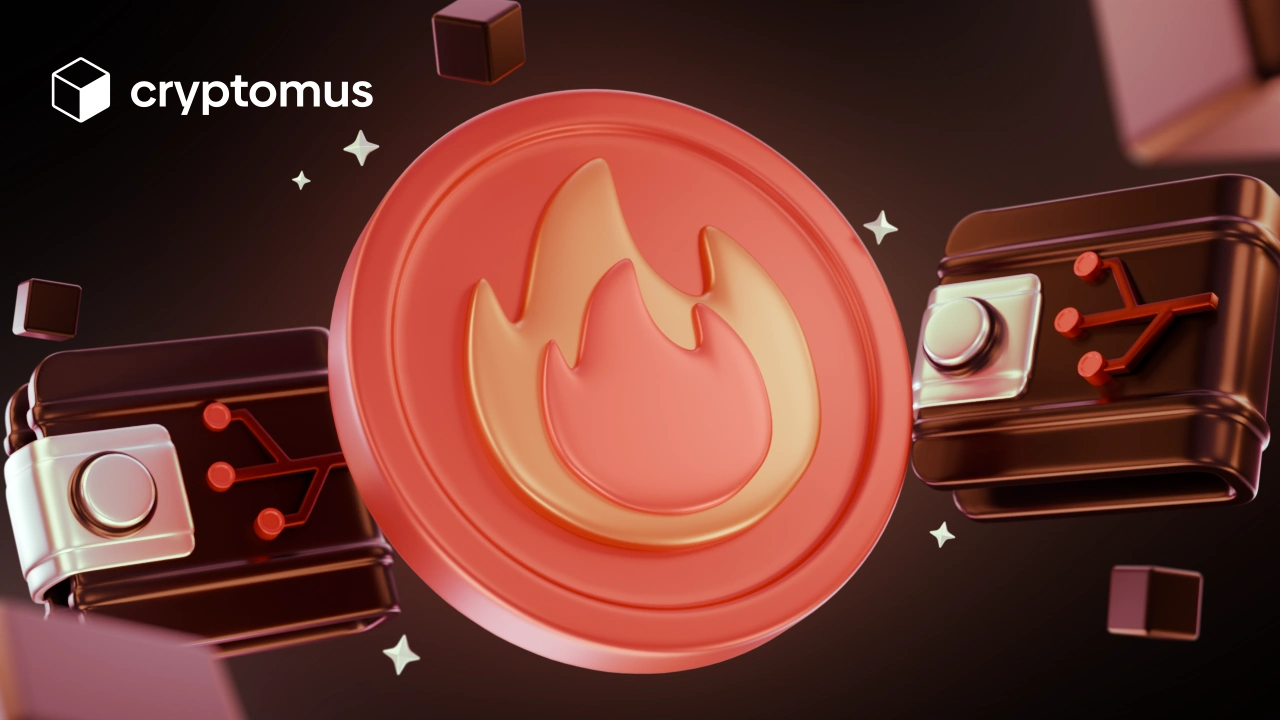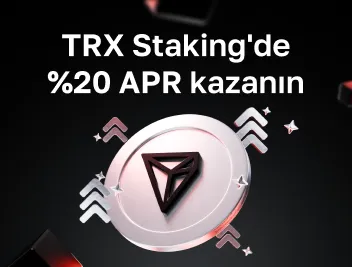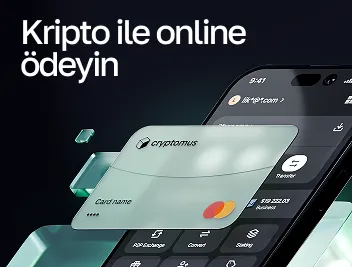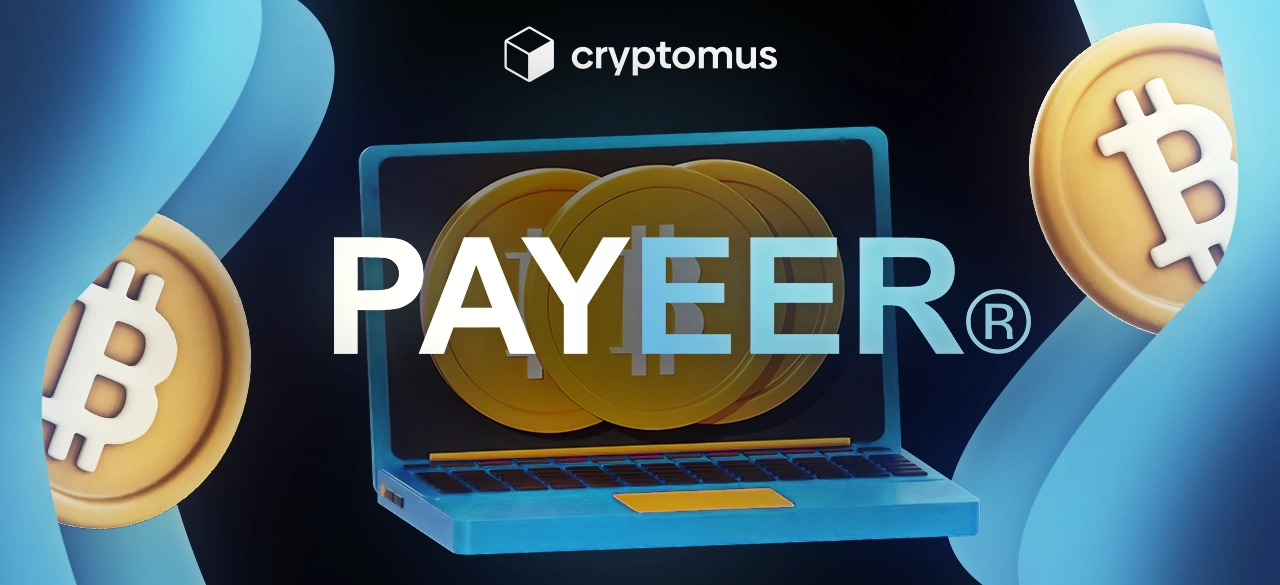
Sıcak Cüzdan Nedir ve Nasıl Çalışır?
İçindekiler
Kripto para varlıklarınızın güvenliğini sağlamak son derece kritiktir. Bu nedenle, çoğu kripto kullanıcısı sık sık sıcak cüzdanlar kullanmayı tercih eder.
Bu makale, sıcak cüzdanın ne olduğunu açıklayacak. Nasıl çalıştığını keşfedecek, kurulum sürecini netleştirecek ve yaygın riskleri tartışacağız.
Sıcak Depolama Cüzdanı Nedir?
Sıcak cüzdan, internete bağlı dijital bir depolama alanıdır. Mobil uygulamalar, masaüstü bilgisayarlar veya web tabanlı platformlar gibi çeşitli biçimlerde gelir.
Örneğin, Cryptomus, pratiklik ve güvenliğin dengeli bir kombinasyonuyla kapsamlı bir sıcak cüzdan örneğidir. Birden fazla kripto paranın sorunsuz bir şekilde yönetilmesini sağlar ve şifreleme ile iki faktörlü kimlik doğrulama gibi gelişmiş güvenlik özellikleri, işlemlerin güvenli bir şekilde kalmasını garanti eder.
Pratiklik ve hızlı işlemleri ön planda tutan bu cüzdanlar, uzun süreli varlık saklamak için uygun olan çevrimdışı depolama çözümleri olan soğuk cüzdanlardan farklıdır. Bu, sıcak cüzdanları, günlük olarak ticaret yapan ve token saklayan kripto kullanıcıları için popüler bir seçenek yapar.
Ancak, çevrimiçi çalışıyor olmaları, sıcak cüzdanların daha sonra tartışacağımız bazı risklere açık hale gelmesini sağlar.
Çevrimiçi Cüzdan Nasıl Çalışır?
Sıcak cüzdanlar, bir çift kriptografik anahtar oluşturur: bir açık anahtar ve bir gizli anahtar. Açık anahtarınız, token almak için kullanılan dijital bir cüzdan adresidir. Gizli anahtar ise fonlarınıza erişim sağlayan ve işlemleri yetkilendiren bir gizli koddur. Kullanıcı deneyimini basitleştirmek için çoğu çevrimiçi cüzdan, bu anahtarları sizin adınıza yönetir.
Kripto para gönderimi, işlemi tüm blok zinciri ağına yayınlar. Ağ, işlemi açık ve gizli anahtarlarınızı kullanarak doğrular ve ardından fonları alıcıya gönderir.
Sıcak cüzdanlar yalnızca kolay kullanım sunmakla kalmaz, aynı zamanda kullanıcı varlıklarını korumak için şifreleme ve 2FA gibi güvenlik önlemlerini de önceliklendirir. Çevrimiçi cüzdanların pek çok örneği vardır ve birçok kripto borsası, satın alınan paraları depolamak için entegre cüzdanlar sunar. Popüler sıcak cüzdan örnekleri şunlardır:
- Cryptomus
- Coinbase
- Metamask
- Exodus
- Trust Wallet

Sıcak Cüzdan Nasıl Kurulur?
Sıcak cüzdanların ana avantajlarından biri, kurulumunun genellikle basit olmasıdır. Farklı cüzdan sağlayıcıları çeşitli erişim yöntemleri sunar. Bazıları çevrimiçi erişime izin verirken, diğerleri belirli bir uygulama veya yazılım indirilmesini gerektirir. İşte sıcak bir kripto cüzdanı oluşturma adımları:
- Cüzdan Sağlayıcısını Seçin
- Bir Hesap Oluşturun
- Cüzdanınızı Güvenceye Alın
- Cüzdanınıza Fon Ekleyin
- Fonlarınızı Yönetin
Cüzdan sağlayıcısına gelince, Cryptomus üzerinde tam özellikli bir cüzdanı kolayca oluşturabilirsiniz. Tüm mevcut güvenlik özelliklerini kullandığınızdan emin olun: güçlü, benzersiz bir şifre oluşturun ve platform izin veriyorsa 2FA'yı etkinleştirin. Kurtarma ifadesini yedeklemeyi ve çevrimdışı olarak saklamayı unutmayın, bu da hack risklerini önlemeye yardımcı olur.
Cüzdan kurulduktan sonra, işlem ayrıntılarını girerek veya cüzdan adresinizi paylaşarak token gönderebilir ve alabilirsiniz.
Sıcak Cüzdan Riskleri
Kripto para sıcak cüzdanlarıyla ilgili temel potansiyel risk, bunların hacklenme ve hırsızlığa karşı savunmasız olmasıdır. Web tabanlı olduklarından, bu tür cüzdanlar siber saldırılara karşı savunmasızdır. Hackerlar, gizli anahtarlarınızı çalmaya ve fonlarınıza erişmeye çalışabilirler.
Diğer sıcak cüzdan riskleri şunları içerir:
- Veri İhlalleri: Web tabanlı cüzdanlar, gizli anahtarlar gibi hassas bilgileri ortaya çıkarabilecek veri ihlallerine karşı savunmasızdır.
- Tohum İfadesi Açığı: Tohum ifadenizi ifşa etmek veya fotoğrafını çekmek, cüzdanınızı ele geçiren herkese tam kontrol sağlar.
- Sunucu Kesintisi: Cüzdan sağlayıcısı sunucu sorunları yaşarsa, fonlarınıza geçici olarak erişiminizi kaybedebilirsiniz.
- Kötü Amaçlı Yazılımlar: Hackerlar, cihazları ve cüzdanları ele geçirmek için kötü amaçlı yazılımlar kullanır.
Bu riskleri etkili bir şekilde yönetmek için güçlü bir güvenlik odağı şarttır. Güvenilir cüzdan sağlayıcılarını seçin, benzersiz şifreler oluşturun, 2FA'yı etkinleştirin ve şüpheli bağlantılara ve e-postalara dikkat edin. Ayrıca, cihazınızın her zaman güncel bir antivirüs yazılımıyla korunduğundan emin olun.
Bu, sıcak kripto cüzdanları hakkında bilmeniz gereken her şeydi. Gördüğünüz gibi, günlük işlemler için ilk tercihiniz olmalıdırlar. Ve riskler olmasına rağmen, bunlarla başa çıkmanın yolları vardır.
Umarız bu makale faydalı olmuştur. Lütfen alıştırmalarınızı ve sorularınızı aşağıya gönderin!
Kripto Yolculuğunuzu Basitleştirin
Kripto para birimlerini depolamak, göndermek, kabul etmek, stake etmek veya takas etmek mi istiyorsunuz? Cryptomus ile hepsi mümkün — kaydolun ve kullanışlı araçlarımızla kripto para birimi fonlarınızı yönetin.
Başla









